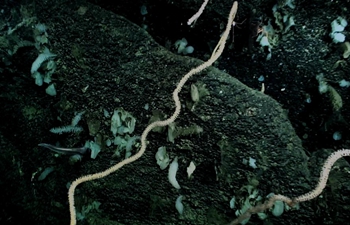CHICAGO, May 18 (Xinhua) -- Polygenic risk scores may be useful in stratifying the risk of several cancers among patients in medical centers, allowing for the potential discovery of new associations between genes, disease and secondary effects, a study of the University of Michigan (UM) shows.
Researchers at UM's School of Public Health conducted a phenome-wide association study in 28,260 unrelated, genotyped patients of recent European ancestry to evaluate whether polygenic risk scores for common cancers are associated with multiple phenotypes.
The study used data from participants' electronic health records.
The results demonstrate that polygenic risk scores, a summary score constructed based on results obtained from large population-based genome-wide association studies, can be potentially useful for cancer risk stratification among patients in an academic medical center.
"Looking at the data, it was surprising to me how logical the secondary diagnosis associations with the risk score were," said Bhramar Mukherjee, a professor of biostatistics and epidemiology at UM's School of Public Health.
The researchers will expand the analytic model to other lab tests and biomarkers to see if new associations with diseases across the phenome can be found there.
They also plan to re-contact the initial subjects to collect data on their behavioral and environmental risk factors.
"There's enormous potential in terms of collecting behavioral data and integrating with molecular data," Mukherjee said. "Family history, stress data, anxiety data, sleep quality data, mental health data, so that you have a much more integrated vision of what is happening in a person's life."
The study will be published in the American Journal of Human Genetics.

















